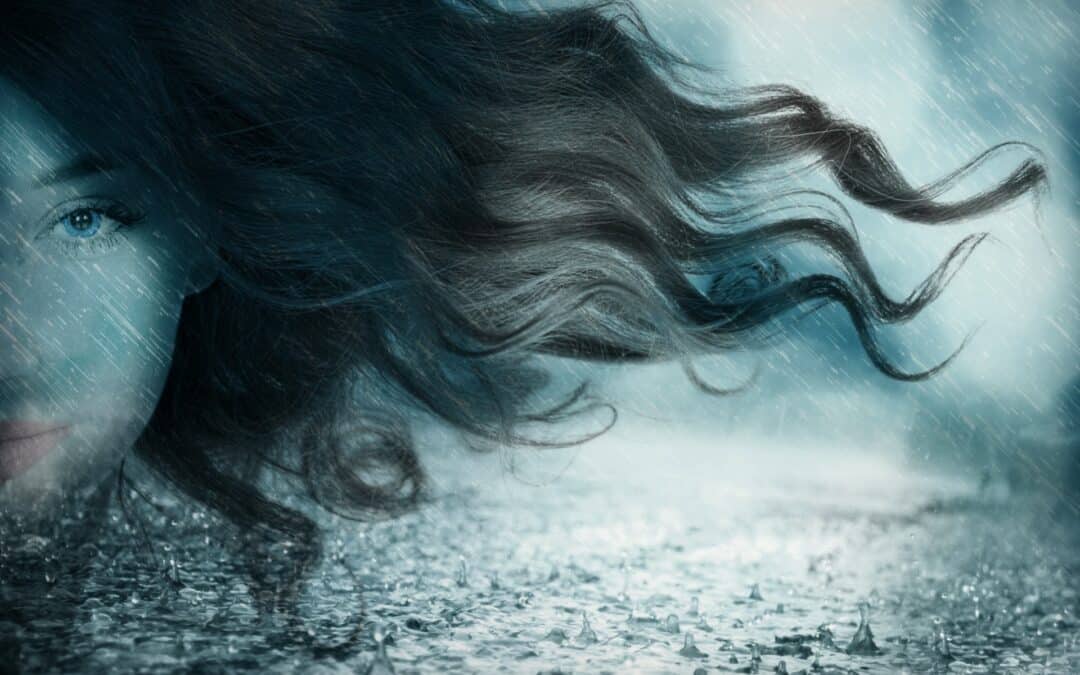Poetry is often pushed aside in our increasingly visual culture, but we reach for its power of expression when conventional communication isn’t enough. As Iain S. Thomas writes in the Huffington Post: “What will you say at your father’s funeral? What will you read to your wife’s family on your wedding day? When your son goes to war, what sentence will he have engraved on his zippo?”
Here are 13 books to read when you’re seeking to better understand love, loss, the human spirit, and the power of the imagination:
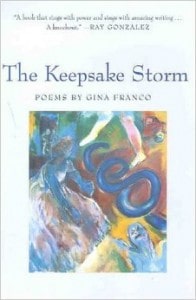 1) The Keepsake Storm, by Gina Franco
1) The Keepsake Storm, by Gina Franco
This book is gorgeously wrought. Pulitzer Prize winner Junot Díaz mentioned Franco’s work in The New York Times as one of the books that’s been greatly influential to him, and he’s not alone. Franco’s lyricism dazzles and her nuanced exploration into themes of memory, cultural erosion, and identity should be required reading. I can’t wait to read her second book! Check out this poem of hers, “Refrain,” published in Poetry magazine.
2) The Complete Poems of Emily Dickinson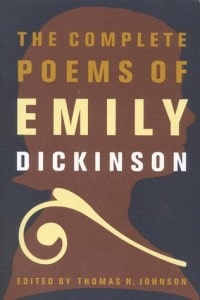
If Walt Whitman is the father of American Poetry, Emily Dickinson is the mother. Dickinson’s legend precedes her, but it’s nothing compared to her work. Her gnomic poetry anticipated 20th-century poetic forms and has rightly become a monolith. She’s a master at manipulating rhyme, and her images are unexpected yet startlingly apt. My favorite Dickinson poem is “It Was a Quiet Way.”
 3) Tender Buttons, by Gertrude Stein
3) Tender Buttons, by Gertrude Stein
Stein received some pretty feisty rejection letters in her day, but this formidable and innovative poet’s gotten the last laugh. Her book, Tender Buttons, is a triumph of Modernism. Stein’s writing about ordinary objects is wildly inventive: she captures perfectly the hidden mystery and vitality that abide in the the things that surround us. She tests the logical limits of language and forces us–in prose–to see in poetry. Read her work!
4) Collected Poems, by Allen Ginsberg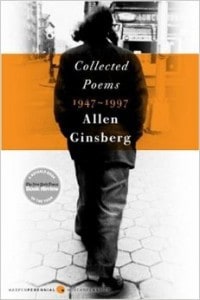
The most important poet of the Beat Generation, Allen Ginsberg carried the torch of Walt Whitman’s idiom while exchanging Whitman’s fervent nationalism for a more cosmopolitan set of ideals. His poem “Howl” made literary history when its publisher won a landmark trial for free speech. His poem “Kaddish” is an immensely haunting elegy for his mother. And his poem “America” is a blistering, hilarious critique of the state our union in Ginsberg’s day. Ginsberg wrote prolifically and freely, and we’re better for that fact.
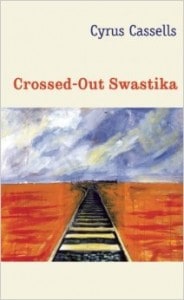 5) Crossed-Out Swastika, by Cyrus Cassells
5) Crossed-Out Swastika, by Cyrus Cassells
Winner of the William Carlos Williams Award and nominated for the Pulitzer Prize, Cyrus Cassells turns his attention to the Holocaust in his most recent book. The poems, though, are not what you’d expect from a volume on this subject. Cassells set out to write a book about the integrity and courage of young people during the Holocaust, and the result is astounding. Crossed-Out Swastika contains a history you haven’t yet read, one that demands to be remembered. War dehumanizes, but poetry–and certainly this poetry–is vital, as it celebrates our shared humanity and renders us more human.
6) War of the Foxes, by Richard Siken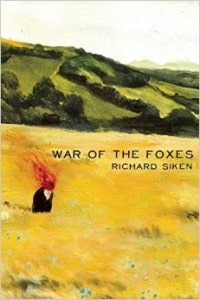
Siken won the prestigious Yale Prize for Younger Poets in 2004 with his debut book Crush, and fans have had to wait over 10 years for his second volume. War of the Foxes doesn’t disappoint. In an interview with BookPage, Siken says of the project, “I wanted to show the difficulties of representation. A bird and a painting of a bird are different, just as an event and the story of an event are different.” The title poem, a prose allegory on war, has moments of paradoxically grave levity, such as the stellar line “The fish in the fishsticks think to themselves This is not what we meant to be.” You can finish the book in less than an hour–but like all good poetry, it endures.
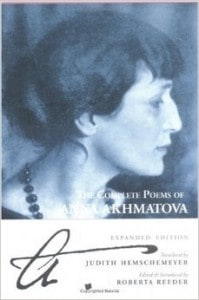 7) The Complete Poems of Anna Akhmatova
7) The Complete Poems of Anna Akhmatova
Anna Akhmatova is one of the most celebrated Russian poets, along with Boris Pasternak and Marina Tsvetaeva. Her writing tends to be spare and controlled, but it brims with emotion. Her early, romantic work often deals with men and women in love, while her later, lyrical work–such as the long poem Requiem (written in secret)–is richly allusive and bears witness to the terror of life in Soviet Russia. I thoroughly enjoyed Stephen Berg’s envisioning of Akhmatova’s poetry in With Akhmatova at the Black Gates, which led me to discover this superb edition of Akhmatova’s complete poems.
8) Duino Elegies & The Sonnets to Orpheus, by Rainer Maria Rilke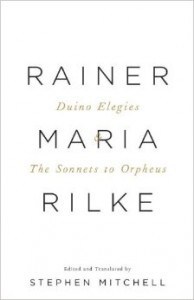
German poet Rainer Maria Rilke is perhaps the best poet ever to have written. He’s the quintessential poet’s poet, and his work addresses themes of beauty, art, representation, the angelic, love, childhood–pretty much everything you’d ever need to read is found in Rilke. The Duino Elegies, along with The Sonnets to Orpheus, constitute the pinnacle of his poetic achievement. Stephen Mitchell’s translations, by the way, are the best ones to read. With lines like, “For beauty is nothing/but the beginning of terror, which we still are just able to endure/and we are so awed because it serenely disdains/to annihilate us,” Rilke’s poetry is spectacularly unparalleled. In the final, incredible line of “Archaic Torso of Apollo,” a meditation on the transformative power of art, Rilke writes, “You must change your life.” Luckily, his poems help you do just that.
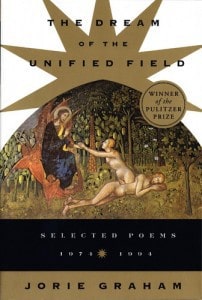 9) The Dream of the Unified Field, by Jorie Graham
9) The Dream of the Unified Field, by Jorie Graham
Winner of the Pulitzer Prize for Poetry, Jorie Graham’s The Dream of the Unified Field: Selected Poems is the perfect survey of Graham’s important body of work. Her early poems are clean and restrained, while her later work combines the long line of Whitman with the short line of Williams to form the perfect vehicle for Graham’s singularly original, unmistakable voice. Her poems are imbued with a spatial awareness unrivaled by many of her contemporaries, and her interest in history and political concern are apparent–and necessary–throughout her work. Even when seemingly messy and sprawling, Graham’s work transports us. It’s a celebration of “that break from perfection//where the complex mechanism fails, where the stranger appears in the clearing,//out of nowhere and uncalled for, out of nowhere to share the day.”
10) Autobiography of Red, by Anne Carson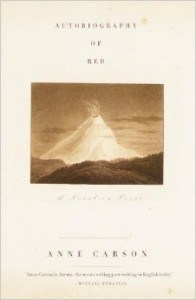
Anne Carson, a classics scholar and supremely gifted poet, reimagines the tenth labor of Herakles in this novel in verse. The hero of the book is the monster Geryon, depicted in the novel as a boy with red wings who lives on a red island and herds red cattle. The book begins with Carson’s loose translations of fragments from the poet Stesichoros, such as this gem:
Are there many little boys who think they are a
Monster? But in my case I am right said Geryon to the
Dog they were sitting on the bluffs The dog regarded him
Joyfully
What’s not to love?
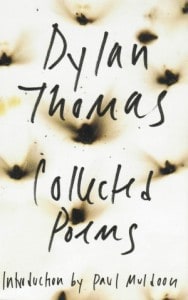 11) The Collected Poems of Dylan Thomas
11) The Collected Poems of Dylan Thomas
The self-styled “Rimbaud of Cwmdonkin Drive,” Dylan Thomas is Wales’s best-known and best-loved poet. A lyrical genius with an unforgettable, booming voice, Thomas writes both beautiful and necessary poetry. From the oft-quoted “Do Not Go Gentle Into That Good Night” and “Fern Hill” to his earlier, more difficult work, Dylan Thomas’s poems are masterfully wrought and even better listened to than read. Go on YouTube and search for recordings of the poet reciting his work! Sadly, Thomas died too soon, but his spirit lives on in his harrowing poems.
12) Spring & All, by William Carlos Williams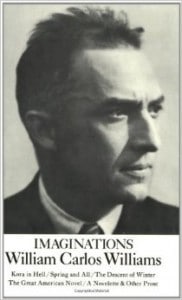
Williams was an incredibly gifted and prolific poet and champion of what he called the “American idiom.” His poems are written in clear and precise language that everyone can understand, and they follow the natural rhythms of American speech. Williams’s work marked a significant departure from the predominantly British-influenced poetry of his day. As a pediatrician, he delivered thousands of babies, yet managed to find time to write dozens of books. Of these, Spring & All is his best. Written in alternating prose and poetry, Spring & All celebrates beginning again–artistically and in our daily lives.
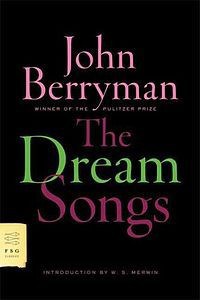 13) The Dream Songs, by John Berryman
13) The Dream Songs, by John Berryman
Another winner of the Pulitzer Prize, Berryman stands alone in American poetry. His Dream Songs are the height of his achievement, and there’s nothing in our language like them. A sequence of hundreds of sonnetlike poems, the Dream Songs meld highbrow and lowbrow diction and are populated by a host of characters–hidden and revealed–including the infamous “Henry,” whom Berryman denied was based on himself. Although they’re often difficult to understand, the poems are by turns hilarious and dark, and they never fail to please this reader.
* * *
For more reading recommendations, as well as SAT & ACT prep tips, subscribe to our mailing list!
